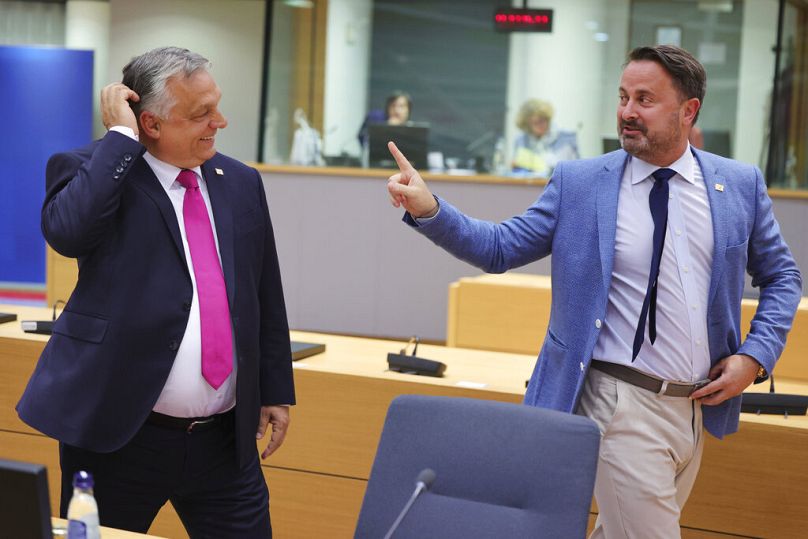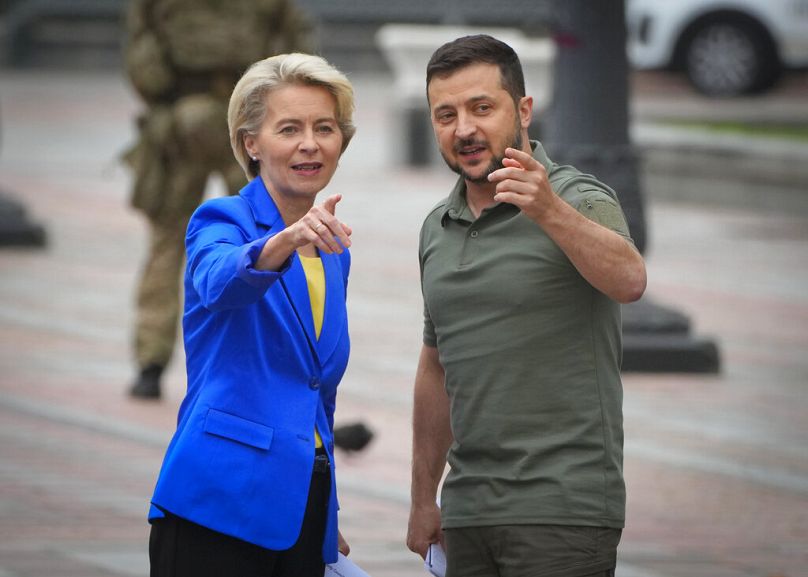Member states must realise that the only choice is to share sovereignty at the European level. In short, nationalism is contrary to the national interest, Marco Buti writes.
Europe is at a decisive turning point in its history. The choices to be made over the next year will determine whether it can meet the expectations of its citizens, and realise the hopes raised by the responses to the pandemic with the launch of Next Generation EU.
Or, if it will become increasingly irrelevant in a global scenario characterised by new fault lines and, most notably, by the conflict between the United States and China.
In the Manifesto for Europe published on Wednesday, eminent European personalities outline the main coordinates of the path to follow so that the European Union is not relegated to a secondary role.
The Manifesto starts from the assessment that, in a fragmented world, the EU's productive structure — relying on high external demand, mature technologies, stagnant demographics, and growing social tensions — is not sustainable in the long term.
Without changing its “business model”, the EU can survive, but not thrive. Ultimately, the European social model is at risk.
Tempting inward-looking avenues are not the way to go
The Manifesto clearly indicates the paths not to be pursued: climate denial, rearguard mercantilism, demographic autarchy, and the withdrawal from international value chains.
These inward-looking avenues, albeit tempting in the short term, would lead the EU in the opposite direction.
The response of the signatories of the Manifesto is to establish a new European political contract that overcomes the opposition between solidarity and responsibility, between efficiency and protection, and between integration and sovereignty.
The path to rebuilding trust is what they call "gradual and pragmatic federalism" comprising seven recommendations: a deeply reformed EU budget supplying genuine European Public Goods, new common fiscal rules, the achievement of a financial union, a future-oriented industrial policy, a revamped state aid policy, an education and training strategy for integrating migrants, and a credible EU security and defence policy.
To pursue this path, it is necessary to change the rules of the game in the EU. In recent years, following the pandemic crisis and the response to the Russian war of aggression and energy crisis, the EU has made fundamental decisions, but always under the pressure of the emergency.
Decision-making rules reform before enlargement
The Von der Leyen Commission has sometimes been dubbed the “Article 122 Commission”, after the article of the Treaty on the Functioning of the European Union that allows it to take emergency decisions under extreme circumstances.
However, it would be a strategic mistake to think that this could be a modus operandi for the future of the EU.
In particular, in view of a new enlargement that would bring the EU to 35 or more members, waiting for existential crises to make fundamental decisions would lead to permanent decision-making paralysis.
Tensions would be accentuated by the fact that the new candidate countries will be large net beneficiaries, starting with Ukraine.
The Manifesto is very clear in this: the EU's decision-making rules must be reformed before, not after enlargement, as some seem to prefer.
Albeit politically inconvenient, the taboo of treaty change must be overcome. However, many steps can be taken earlier.
Interestingly, a recent Report of a Franco-German Working Group, in tracing a path for reforming and enlarging the EU, comes to a similar assessment.
The signatories of the Manifesto think that it is possible, necessary and even prudent.
Are European leaders up to the test?
Europe must shun populist sirens and rebuild a climate of trust between governments, institutions and citizens.
Member states must realise that, to count, the only choice is to share sovereignty at the European level.
The need to fight together the climate disasters we experienced this summer or the imperative of facing the immigration crisis of recent weeks would be enough to demonstrate this. In short, nationalism is contrary to the national interest.
The Informal European Council of 6-7 October in Granada, which will discuss the future of open strategic autonomy and approve the declaration on the EU's future priorities, will be the first test. Will European leaders be up to it?
Marco Buti holds the Tommaso Padoa Schioppa chair at the Robert Schuman Centre at the European University Institute (EUI) in Fiesole near Florence. Before joining the EUI, he was Chief of Staff of the European Commissioner for Economy Paolo Gentiloni.
At Euronews, we believe all views matter. Contact us at view@euronews.com to send pitches or submissions and be part of the conversation.













